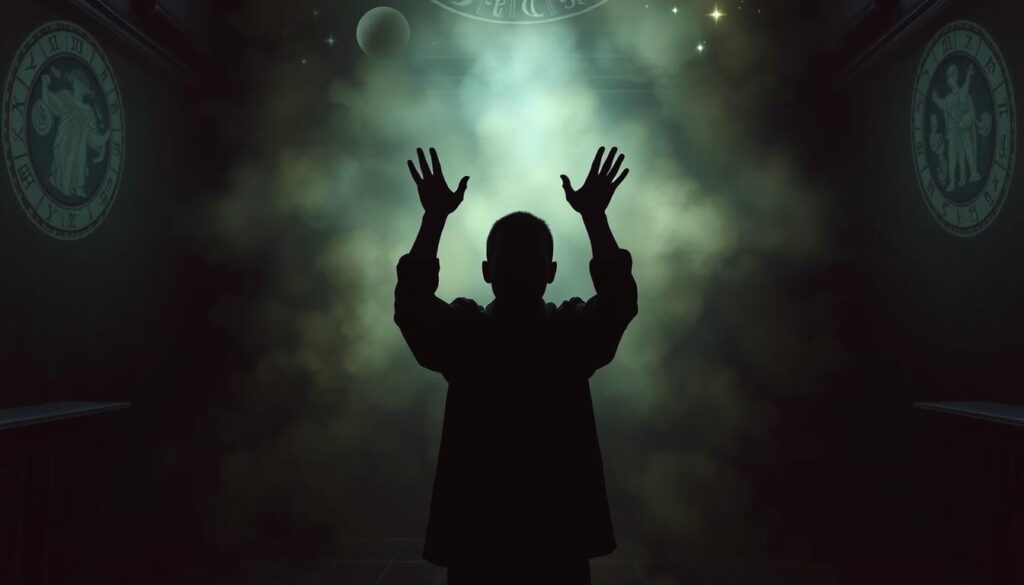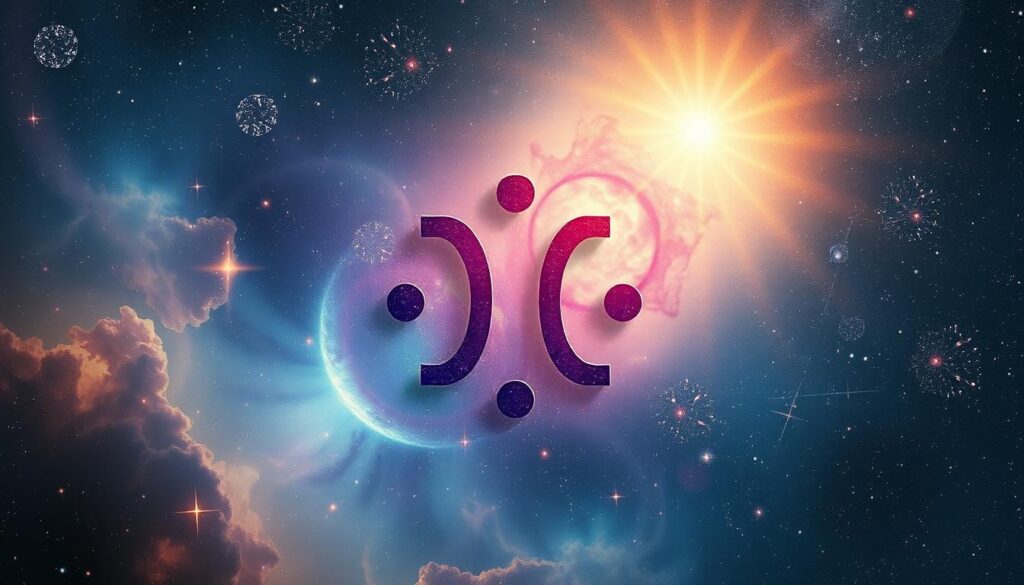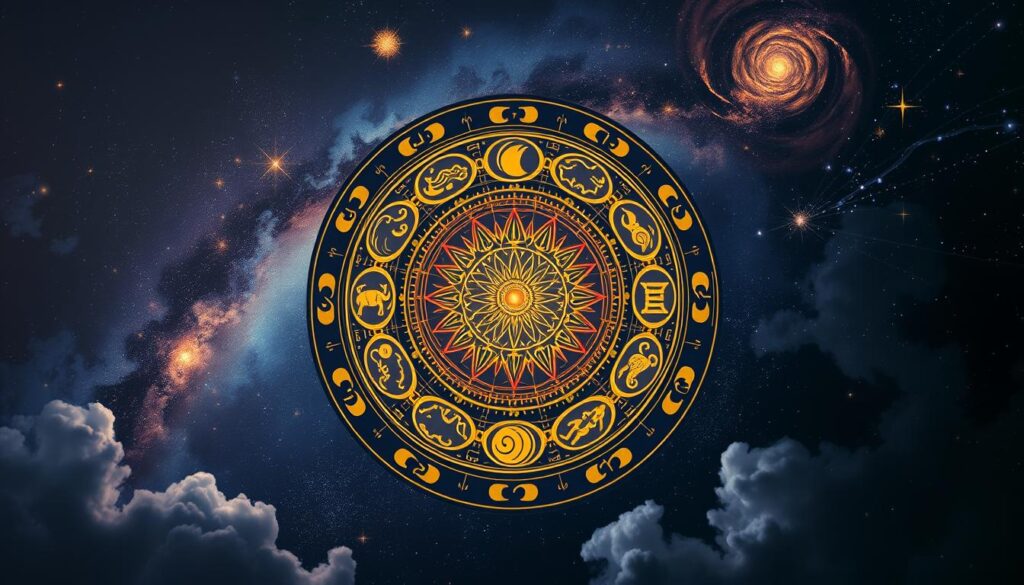Astrology has fascinated individuals for centuries, offering insights into personality and life predictions. Many find comfort in horoscopes, which provide a sense of direction and understanding. This enduring appeal lies in the way astrology connects with core character traits.
The Barnum effect plays a significant role in this belief. Named after the 19th-century showman P.T. Barnum, it describes how vague personality assessments seem accurate. Forer’s experiment demonstrated this by giving participants identical descriptions, which they found highly personal.
In today’s fast-paced world, astrology has seen a digital resurgence. Instant access to horoscopes and astrological information makes it appealing. This modern twist keeps the ancient practice relevant, blending tradition with technology.
This article explores the origins of astrology, cognitive biases, and scientific criticisms. It balances myth and evidence-based analysis, providing a comprehensive view of why astrology remains influential.
Key Takeaways
- Astrology offers personality insights and life predictions.
- The Barnum effect explains why vague descriptions feel personal.
- Forer’s experiment highlights the psychology behind astrological beliefs.
- Digital platforms have modernized astrology’s appeal.
- This article balances myth and scientific inquiry.
Exploring the Origins and Evolution of Zodiac Belief
From Babylon to modern apps, astrology has evolved into a cultural phenomenon. Its roots trace back to ancient civilizations, where celestial patterns were used to interpret personality and predict events. This practice has transformed over centuries, adapting to new technologies and cultural shifts.
Historical Foundations of Astrology
Astrology began in Babylon around 2000 BCE, where priests studied the stars to guide decisions. The Greeks later formalized these ideas, creating the 12 zodiac signs we know today. These signs were tied to a 12-month lunar calendar, despite the presence of more constellations in the sky.
Over time, the gravitational precession effect altered the position of stars, shifting the alignment of zodiac signs. This fact highlights the dynamic nature of celestial observations. Historical records and peer-reviewed studies document this evolution, offering a clear timeline of astrological development.
Modern Adaptations in the Digital Era
In the 20th century, astrology found a new home in newspapers, reaching a broader audience. Today, digital platforms have revolutionized the practice. Apps and websites provide instant horoscopes, blending ancient wisdom with modern convenience.
Social media has further amplified interest in astrology, making it a global trend. Academic studies explore how these platforms influence the way individuals engage with astrological predictions. This digital transformation ensures astrology remains relevant in a fast-paced world.
Unraveling Cognitive Biases: The Barnum Effect and More
Our minds often accept generalized statements as deeply personal truths. This tendency lies at the heart of why vague personality descriptions, like those in horoscopes, feel accurate. Cognitive biases, such as the Barnum effect, play a significant role in this process.
Understanding the Barnum and Forer Effects
The Barnum effect, named after showman P.T. Barnum, explains how people perceive vague statements as highly individualized. Psychologist Bertram Forer demonstrated this in a famous experiment. He gave students identical personality assessments, yet they rated them as accurate descriptions of their character.

This experiment highlights how general statements can resonate with individuals. The Forer effect, a subset of the Barnum effect, shows that people often validate broad predictions as personal truths.
Experimenting with Subjective Validation
Subjective validation occurs when individuals interpret ambiguous information as meaningful. For example, a horoscope might say, “You are facing challenges but will overcome them.” Many people find this relevant, even though it applies to almost everyone.
Confirmation bias further reinforces this belief. People tend to remember positive validations and ignore negative feedback. This selective memory fuels ongoing interest in astrology and similar practices.
How Our Minds Embrace Generalized Descriptions
Scientific studies show that our brains are wired to find patterns, even in randomness. This tendency makes us accept generalized descriptions as facts. Media amplifies this effect by disseminating widely accepted archetypes.
For instance, newspaper horoscopes often use broad statements that appeal to a wide audience. This approach ensures that readers find something relatable, reinforcing their belief in the predictions.
Understanding these cognitive biases helps explain why astrology remains popular. It’s not just about the stars; it’s about how our minds interpret the information we receive.
why do people believe in zodiac signs
Astrology provides a sense of structure in an unpredictable world. It offers a framework for understanding personal challenges and navigating life’s uncertainties. This appeal is rooted in its ability to provide comfort and clarity during stressful periods.
Astrology as a Tool for Meaning-Making in Uncertain Times
During uncertain life moments, astrology becomes a refuge. It helps individuals make sense of chaos by offering predictions and insights. Psychologist Jennifer Freed, PhD, notes, “Astrology satisfies the human need for order and predictability.”
Studies show that those with an external locus of control find validation in astrological forecasts. This type of guidance provides reassurance, making it a powerful coping mechanism. The psychological effect of astrology is profound, as it reflects core personality traits and life experiences.

Influence of Social Media and Pop Culture
Social media has reinvigorated interest in astrology. Platforms like Instagram and TikTok share daily horoscopes, making them accessible to a global audience. This digital transformation ensures astrology remains relevant in a fast-paced world.
Pop culture further amplifies its appeal. Celebrities often share their zodiac signs, reinforcing its cultural significance. Digital trends and app-based horoscopes bolster the perception of personalized insight, making astrology a modern phenomenon.
| Psychological Factor | Influence on Belief |
|---|---|
| Confirmation Bias | People remember positive validations. |
| Subjective Validation | Ambiguous statements feel personal. |
| Need for Order | Astrology provides structure. |
| External Locus of Control | Individuals seek external guidance. |
The power of astrology lies in its universality. It’s a way to navigate life’s challenges, offering insights that resonate across cultures. This belief persists, blending ancient wisdom with modern digital experiences.
Scientific Perspectives on Astrology’s Accuracy and Criticisms
Scientific scrutiny reveals the limitations of astrological claims. While many find comfort in horoscopes, empirical evidence often contradicts these predictions. This section explores the academic debate surrounding astrology’s validity and its classification as pseudoscience.

Analyzing Peer-Reviewed Studies and the Pseudoscience Debate
Numerous peer-reviewed studies have examined astrology’s accuracy. A meta-analysis published in the Journal of Scientific Exploration found no significant correlation between astrological forecasts and real-life outcomes. Researchers concluded that astrological predictions rely on vague statements rather than measurable data.
Astrology is often labeled as pseudoscience due to its lack of falsifiability. Unlike scientific theories, astrological claims cannot be tested or disproven. This fundamental flaw undermines its credibility in academic circles.
Evaluating Astrological Predictions Versus Empirical Evidence
Astrological predictions often fail when compared to empirical evidence. For example, a study by the University of California tested the accuracy of horoscopes. Participants were given predictions based on their birth charts, but the results showed no better than random chance.
Newspapers and media outlets play a significant role in popularizing astrology. Despite the lack of scientific support, daily horoscopes remain a staple in many publications. This widespread dissemination reinforces the perception of astrology’s validity.
“Astrology’s appeal lies in its ability to provide comfort, not accuracy.”
Key points to consider:
- Astrological predictions lack empirical support.
- Peer-reviewed studies highlight the limitations of astrology.
- Media influence perpetuates belief in horoscopes.
- Critical evaluation is essential for scientific literacy.
Understanding the scientific perspective on astrology encourages informed decision-making. While it may offer comfort, relying on verified information ensures a clearer understanding of the world.
Conclusion
The enduring allure of astrology lies in its blend of ancient tradition and modern relevance. From its historical roots in Babylon to its digital transformation today, it continues to captivate individuals seeking insight into their personality and life.
Psychological factors like the Barnum effect and confirmation bias explain why vague horoscope texts feel personal. These cognitive biases make generalized statements seem accurate, even when they apply to almost everyone.
Despite its widespread belief, scientific evidence does not support astrological predictions. Peer-reviewed studies highlight the lack of empirical data, reinforcing its classification as pseudoscience. While it offers comfort during uncertain time, its accuracy relies more on chance than celestial alignment.
Ultimately, astrology’s charm lies in its ability to provide structure and meaning. However, a critical mindset is essential when interpreting its claims. Balancing cultural tradition with scientific inquiry ensures a more informed perspective on this ancient practice.
